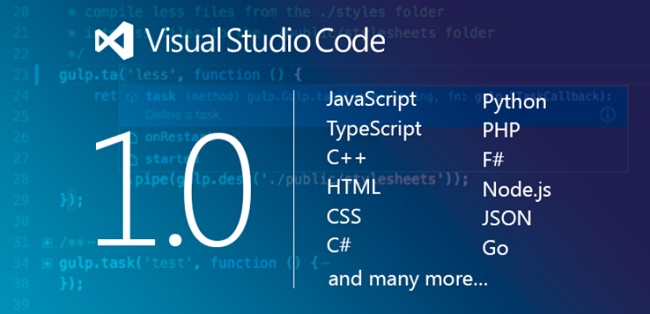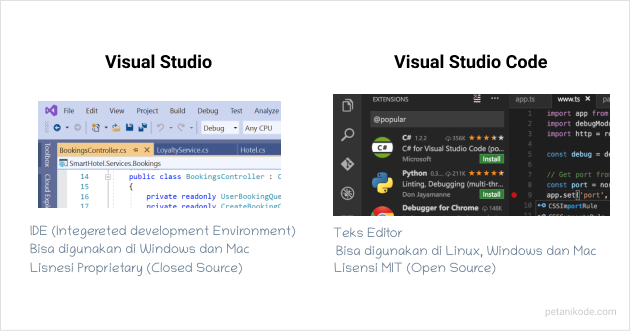

Before we jump straight into the Visual Studio and Visual Studio Code differences, let us explain each term individually first.įor all those individuals who are confused about which one to choose between Visual Studio vs Visual Studio Code, here will explain everything.

Thanks to its fantastic Git integration system. Visual Studio Code has all the features developers need in their day-to-day development work with JavaScript or TypeScript. On the other hand, Visual Studio is more of an all-in-one tool for everything related to software development, including testing, coding, debugging, and project managing. It supports IntelliSense (automatic completion of code based on context), debugging, Git integration, and more. The code editor Visual Studio Code is an integral part of the Visual Studio suite. Visual Studio Code is a lightweight code editor that can be used on Windows, macOS, and Linux. Visual Studio is a cross-platform IDE with some of the most powerful tools for web and mobile application development. If you want to open VS Code in a certain directory, navigate to the directory and enter the code -r command.Deciding between Visual Studio vs Visual Studio Code is not as easy as choosing between a lightweight editor and a heavyweight IDE. If you want to continue working from where you left off in the previous coding session, enter the code command without the -n flag. This will prompt VS Code to start and display a fresh instance. You can install the latest version of Visual Studio Code from their official website.Īfter installation, you can run the editor by entering the code -n command into the terminal. The image below shows how these regions are displayed: To simplify user experience, VS Code is divided into five main regions: The VS Code user interface allows for a lot of interaction compared to other text editors. Moreover, VS Code allows you to add on and even creating new extensions including code linters, debuggers, and cloud and web development support.

VS Code supports a wide array of programming languages from Java, C++, and Python to CSS, Go, and Dockerfile.


 0 kommentar(er)
0 kommentar(er)
